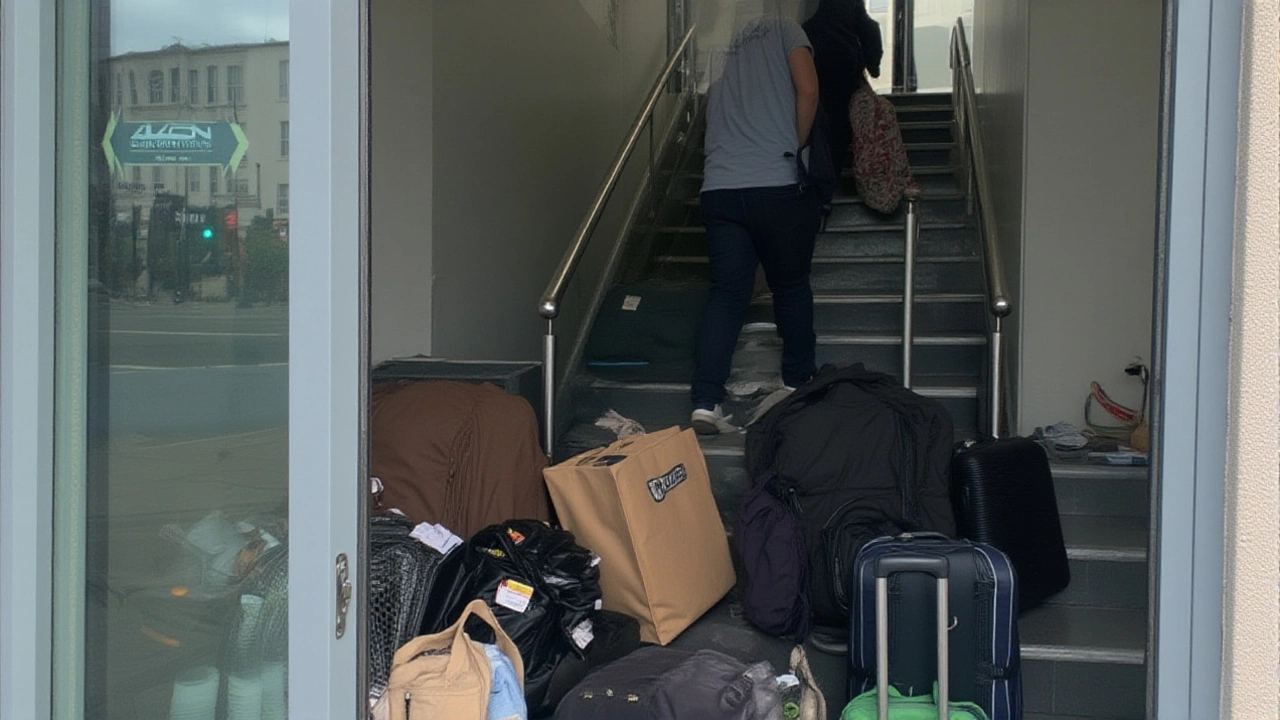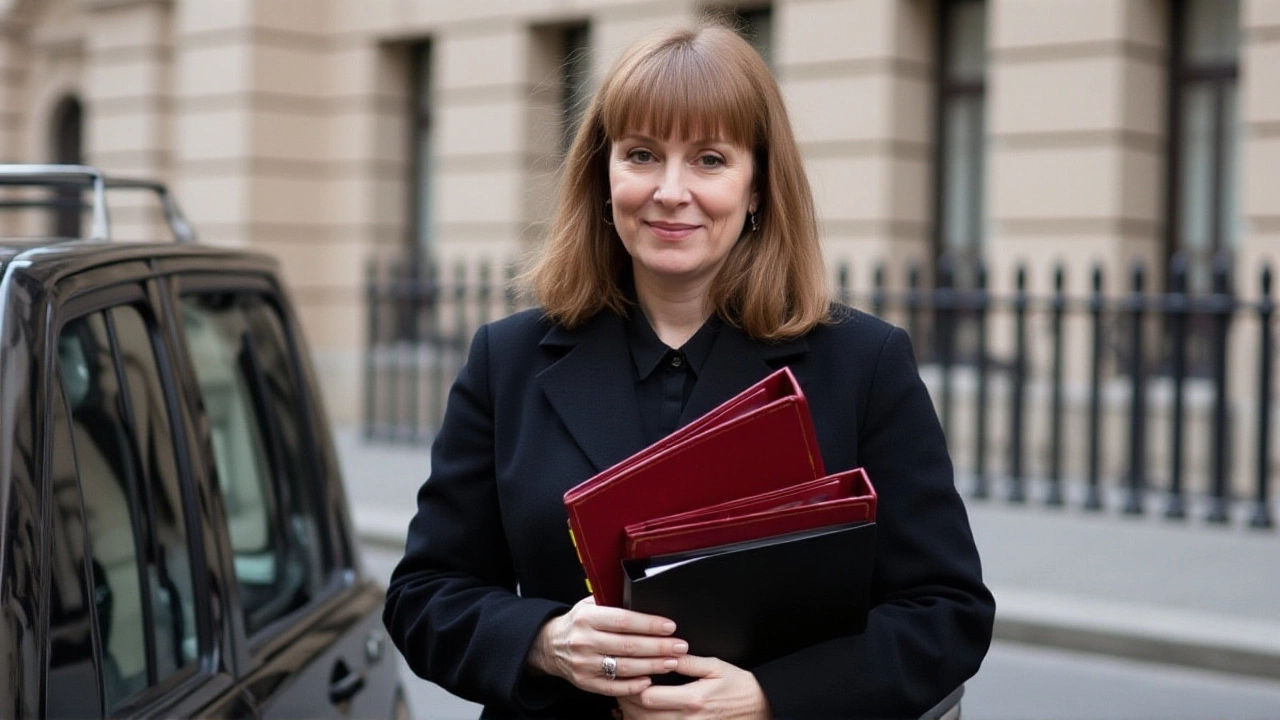When Angela Rayner, Deputy Prime Minister and former Housing Secretary was quoted on TikTok saying the government would "downsize the homes of pensioners and council tenants" to free space for refugees, the claim spread like wildfire. The video, posted on 2 January 2025, sparked a flurry of comments demanding the Labour Party “keep its promises.” But the reality, as a PA Media fact‑check published on 5 January 2025 shows, is far more nuanced – there is no such policy, and the government is still using hotels to house **asylum seekers**.
Fact‑check Origins: The TikTok Claim
Stephen Wood, reporter at PA Media traced the viral post back to a single TikTok clip in which a user, under the handle @BritPoliBuzz, pasted a fabricated quote attributed to Rayner. The clip claimed the Labour government planned to “push councils to seize vacant properties and force pensioners into smaller homes.” Wood’s investigation found no parliamentary record, press release, or official statement supporting the allegation.
The fact‑check highlighted three red flags: no searchable Hansard entry, the quote’s phrasing mismatched Rayner’s known speaking style, and the video’s caption cited a nonexistent “Housing Policy White Paper.” As a result, the claim was rated “false” by PA Media’s verification team.
Government’s Actual Stance on Hotel Use
On 20 November 2024, during a Parliamentary debate on asylum seeker accommodationWestminster, Dame Angela Eagle, Home Office minister confirmed that 220 hotels across the United Kingdom were currently sheltering asylum seekers. She said the hotels “remain key to delivering on our legal responsibility,” while reiterating the government’s “ambition” to phase the practice out.
Five days later, Labour peer Lord Hanson, Labour peer echoed the sentiment in the House of Lords, noting the goal to “exit hotels as quickly as possible to save the taxpayer resource.” The two statements, made a week apart, paint a consistent picture: hotels are a stop‑gap, not a permanent solution.
According to the Home Office, the 220 hotels accommodate roughly 5,000 asylum seekers, with an average cost of £240 per person per night – a figure that totals close to £1.2 billion annually. The cost, while steep, is deemed necessary while the Home Office processes claims that can take months, sometimes years.
Why Hotels Remain Central to Asylum Policy
Legally, there is a distinction between “refugees” – individuals whose claims have been approved – and “asylum seekers,” who are still awaiting a decision. The former receive settlement support and are expected to integrate into communities; the latter must be housed in a manner that respects the UK’s obligations under the 1951 Refugee Convention.
Hotels offer several practical advantages: they are already furnished, have built‑in fire safety systems, and can be quickly repurposed for short‑term stays. The Department for Levelling Up, Housing and Communities (DLUHC) has flagged a shortage of suitable long‑term accommodation, especially in regions where local authorities lack spare social housing units.
Dr. Helena Murray, senior fellow at the Migration Policy Institute, told PA Media that “the hotel model is a pragmatic response to a legal duty and a logistics bottleneck. Until the asylum system can process claims faster, governments will keep a proportion of hotels in the portfolio.”

Political Tensions: Labour’s Manifesto vs. Governing Realities
Labour’s 2023 election manifesto pledged to “end the use of hotels for asylum seeker accommodation within the first year of government.” Yet the November figures show a stark contrast between promise and practice. Critics argue this disconnect erodes public trust, especially in constituencies where hotel residents have sparked local protests over noise and strain on services.
Adding to the confusion, rumours circulated in late December 2024 that Rayner had “surprisingly resigned” as housing secretary. No official resignation letter has been released, and the Home Office confirmed only that Rayner remains Deputy Prime Minister, overseeing the broader housing agenda. Some insiders claim the story stems from a misunderstanding of a scheduled cabinet reshuffle meeting.
Furthermore, unnamed sources told The Guardian that Rayner has been “pushing for councils to gain new powers to seize properties left vacant.” If implemented, such powers could shift the balance of authority from central government to local councils, potentially reducing reliance on expensive hotels. However, details of the proposal remain vague, and no draft legislation has been tabled.
What’s Next for Asylum Seeker Accommodation?
Looking ahead, the Home Office plans to pilot a “community‑based housing” model in three regions – the North East, the Midlands, and the South West – starting spring 2025. The pilot aims to place up to 1,000 asylum seekers into refurbished vacant houses, offering longer‑term stability while freeing hotel capacity for emergency arrivals.
Parliament’s Public Accounts Committee has scheduled a session for February 2025 to scrutinise the £1.2 billion hotel spend. The committee will ask both Dame Angela Eagle and Lord Hanson to outline a clear timeline for the hotel phase‑out, as well as any contingency plans should the asylum backlog swell.
For now, the public narrative remains split: on social media, the Rayner “downsize” claim still circulates, while on the ground, 220 hotels continue to house thousands of vulnerable individuals. As the government wrestles with legal duties, fiscal pressures, and electoral promises, the hotel story will likely stay in the headlines until a concrete alternative is demonstrated.
Frequently Asked Questions
How many hotels are currently used for asylum seeker accommodation?
As of the Home Office briefing on 20 November 2024, 220 hotels across the United Kingdom are housing roughly 5,000 asylum seekers. The figure reflects the latest audited count and includes both private‑sector hotels and council‑run facilities.
Did Angela Rayner announce a plan to downsize pensioners' homes?
No. The claim originated from a viral TikTok video that fabricated a quote. PA Media’s fact‑check found no official statement, parliamentary record, or policy document supporting the allegation.
What is the cost of keeping asylum seekers in hotels?
The Home Office estimates the nightly cost at about £240 per person, which translates to roughly £1.2 billion a year for the 5,000 individuals currently accommodated in hotels.
Why does the government still use hotels despite promising to end the practice?
Hotels provide immediate, safe accommodation while asylum claims are processed. The shortage of long‑term housing and the legal duty to house asylum seekers make hotels a practical, albeit costly, stop‑gap.
What alternatives are being explored for housing asylum seekers?
The Home Office will pilot a community‑based housing scheme in three regions starting spring 2025, aiming to place up to 1,000 asylum seekers into refurbished vacant houses. This model seeks to reduce reliance on hotels and provide longer‑term stability.
